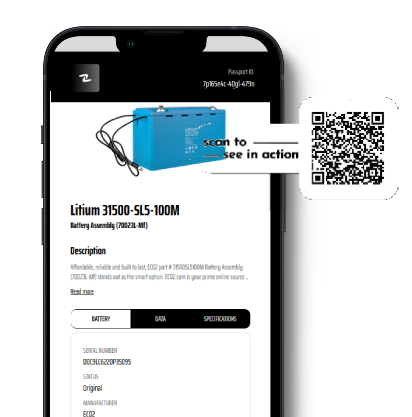
New EU Battery Regulation 2023/1542
New EU Battery Regulation: A Closer Look at Implications for Businesses
The European Union's new Battery Regulation 2023/1542, which takes effect in February 2024, is introducing a significant shift for battery manufacturers, battery importers and their supply chains. This regulation not only sets stringent standards for battery production and disposal but also mandates carbon footprint calculations, recycled content declarations and due diligence policies.
Key Implications for Businesses
Businesses that manufacture or import batteries in the European Union will need to adhere to stricter standards in terms of material use, recycling targets, and labeling. Additionally, they will be held accountable for understanding and disclosing the carbon emissions associated with their batteries and for identifying and monitoring potential adverse social and environmental impacts in their value chain.
Vinçotte (member of Kiwa Group) is offering comprehensive support to businesses navigating the new EU Battery Regulation. This includes helping businesses assess their compliance and ensure their batteries meet the new requirements.
Our range of services to help businesses comply with the new EU Battery Regulation, include:
- Assistance in conducting a gap analysis to identify where actions need to be taken to comply with the regulation.
- Customized trainings when it comes to topics such as determining carbon footprint, determining recycled content, setting up a due diligence policy, assessing battery performance and durability, etc.
- Mandatory third-party verification and auditing by a notified body: Vinçotte (member of Kiwa Group) can verify the CO2 footprint of batteries as well as the share of recycled material. Regarding due diligence policies, we can carry out the mandatory third-party audit. We will apply to become a notified body for these activities as soon as the necessary schemes are set-up.
Helping Businesses Navigate the Carbon Footprint Calculations
To comply with the new EU Battery Regulation, businesses will be obligated to calculate and disclose the carbon footprint of their batteries starting with batteries for electric vehicles as from 18 February 2025. Rechargeable industrial batteries and batteries for Light Means of Transport (LMT) will follow in 2026 and 2028 respectively. This requirement aims to increase transparency and promote the EU's ongoing commitment to a low-carbon economy.
The EU Battery Regulation 2023/1542, with its mandatory carbon footprint verification requirements and other stringent regulations, marks a significant transformation for the battery industry and its access to the European market. It replaces the EU’s previous regulation on batteries sold in the market, and partly focuses on the environmental impact of batteries.
Vinçotte (member of Kiwa Group) has more than a decade of experience in reviewing Lifecycle Assessments and was involved in the testing of the Product Environmental Footprint (PEF) method which is the cornerstone for the delegated act which will set the rules for the carbon footprint calculation and verification.
The EU Battery Regulation 2023/1542, with its mandatory carbon footprint verification requirements and other stringent regulations, marks a significant transformation for the battery industry and its access to the European market. It replaces the EU’s previous regulation on batteries sold in the market, and partly focuses on the environmental impact of batteries.
The new EU Battery Regulation 2023/1542 is relevant to a wide range of businesses and organizations involved in the battery industry, including:
Battery manufacturers:The regulation sets strict standards for battery production, including requirements for material use, recycling, and labeling. Manufacturers will need to comply with these standards to continue selling their products in the European Union.
Battery distributors and importers: Distributors and importers of batteries will be responsible for ensuring that the batteries they bring into the EU comply with the regulation. This may involve verifying the manufacturer's compliance and carrying out their own checks.
Retailers and sellers of batteries: Retailers and sellers of batteries will also need to be aware of the regulation and ensure that they are only selling batteries that comply with the rules. They may need to display information about the batteries' environmental performance and ask for information from their suppliers about the batteries' origins.
Recyclers of batteries:The regulation introduces new requirements for the recycling of batteries. Recyclers will need to be able to separate different types of batteries and ensure that they are recycled in a way that minimizes their environmental impact.
Notified bodies:Notified bodies are independent organizations that are authorized by the European Commission to assess conformity of products with EU regulations. The regulation requires the involvement of notified bodies for certain types of batteries, such as those containing hazardous substances.
Interested in this solution? Contact us!
Contact
Ask your question directly to the specialised team within your sector.



